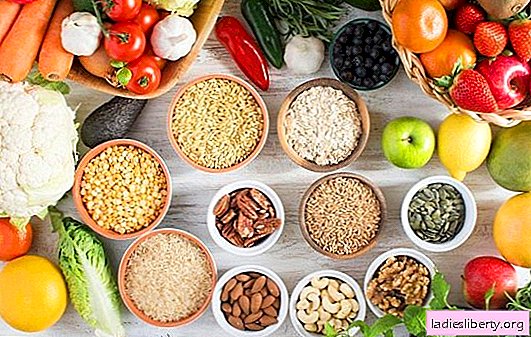
Belgian studies show that fiber deficiency is a major risk factor for diverticulosis and colon cancer. Several other diseases can be cured or even prevented with enough fiber.
How much fiber do scientists recommend taking?
Adults are recommended to consume at least 35 grams of fiber per day. The average per capita consumption in Russia is less than 15 grams.
3 slices of whole grain bread and 5 handfuls of fruits or vegetables fully cover the daily requirement for dietary fiber.
However, not all plant foods contain fiber. The richest sources are nuts and seeds, berries, cabbage and legumes. The latest product is also available as pasta - an alternative for people who care about their health.
How does fiber affect the human body?
Fiber is a dietary fiber that binds water in the intestines.. The fiber provides a long-lasting feeling of satiety, thereby counteracting obesity. Fiber also stimulates intestinal activity.
There are insoluble (whole grains, mushrooms and legumes) and soluble fiber (fruits and vegetables). Insoluble fiber (cellulose, lignin) is the starting material and provides the "mass" in the intestine.
In combination with a sufficient amount of fluid, they swell in the stomach and cause a pleasant feeling of fullness. Insoluble fiber “cleanses” the intestines like a sponge, therefore it prevents diverticulitis, constipation and hemorrhoids.
Soluble fibers (pectin, also inulin, oligofructose and prebiotics) are the "food" for bacteria. Bifidobacteria and lactobacilli are vital for normal bowel function. They produce useful short-chain fatty acids and improve the digestibility of food.
Beta glucans, the soluble fiber found in oats and barley, are especially useful for diabetics. They reduce the risk of developing insulin resistance and reduce the concentration of sugar in the blood.
People who consume enough fiber are less likely to suffer from inflammatory diseases, heart attack, atherosclerosis, and cancer.
The basic rules that must be followed to get enough fiber
If you want to get enough fiber without paying attention to grams, you need to follow a few tips:
- Always choose whole grains - whole grain flour, wholemeal bread, wholemeal pasta, cereal bread, cereal flakes. Wheat and oat bran are especially rich in fiber.
- Eat 5 servings (handfuls) of vegetables or fruits per day. Not all varieties are high in fiber. It is not recommended to use Jerusalem artichoke, cabbage, raspberries, kiwi, as well as dried fruits.
- Take a handful of nuts daily. They not only provide the body with fatty acids and proteins, but also contain a lot of fiber.
Since the fiber swells due to liquid, approximately 1.5 water per day should be taken. Otherwise, digestion is disturbed and constipation occurs.
Slowly but surely increase fiber intake
It is important not to overload the intestines with large amounts of fiber in one day. The body gradually adapts to altered food.
Since some intestinal bacteria break down indigestible components in the colon, forming gases, this can lead to flatulence.
Thorough chewing, refusal of alcohol and exercise help to cope with digestive problems.
Fiber Remedies - Excessive Luxury
Isolated dietary fiber - a mixture of inulin, pectin or synbiotics - is available in the form of powders, chewable tablets or drinks. They are useful in the short term - with severe constipation or indigestion.
However, patients with a normal financial situation are advised to get fiber from natural products. Plants contain not only dietary fiber, but also other healthy nutrients.
Long-term use of drugs with high doses of fiber can disrupt the activity of the gastrointestinal tract. Therefore, before using the medicine, you need to consult a doctor.











